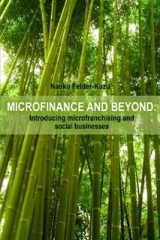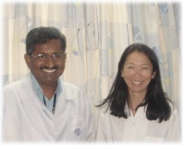The 14th Skoll World Forum on Social Entrepreneurship took place on April 4-7. This year’s theme was Fault Lines: Creating Common Ground. As boldly described in their welcome message;
Globally, rifts are emerging along cultural, class, and political lines as globalization and the digital revolution have benefited some, and left some behind. The divide grows in how people perceive-and experience-the world which represents a threat to a peaceful and prosperous future. Can we design a world where our common humanity outshines our ideological, cultural, and political differences? Together we’ll rise to new ideas, new perspectives, and ultimately, new relationships built on trust and a mutual desire for human progress. We’ll highlight innovators around the world creating common ground through their drive, creativity and leadership.
It was not only an inspiring forum but a very rich and powerful gathering with bold and innovative ideas and exchanges happening, one of the best that I have attended in the past 11 years.
Highly recommended videos to watch… and if you would like to see more here is the entire playlist.
-Jeff Skoll talks with Jim Kim, President of World Bank Group (29min)
-Jess Search talks to Hamdi Ulukaya, Founder and CEO of Chobani (22min)
-A chilling and fascinating analysis by Michael Porter of HBS on what is the problem in the USA: Porter on Populism (90min)
Meet the Skoll Awardees of 2017 (link includes a 5 min intro to all 4 Awardees)
-Kola Masha: Babban Gona is an investor-owned social enterprise serving networks of smallholder farmers in Nigeria with a model created specifically to attract youth. The first for-profit company to receive the Skoll Award
-Elizabeth Hauser: Build Change trains homeowners, local builders, engineers, and government officials to construct or retrofit disaster-resistant houses and schools in emerging nations vulnerable to earthquakes and typhoons.
-Rajesh Panjabi: Last Mile Health partners with government to deploy, support, and manage networks of community health professionals and to integrate them into the public health system. Working in Liberia.
-Bradley Myles: Polaris systematically disrupts human trafficking networks and restores freedom to survivors. With experience and expertise from direct victim services such as hotlines and resource centers, to policy advocacy, Polaris provides a data backbone for the sector.
A big thanks to Jeff Skoll, Sally Osberg, Stephan Chambers, the Skoll team and the Saiid Business School for their awesome work.



 On April 16th, I visited Aravind Eye Hospital in Pondicherry one of the 5 eye hospitals of
On April 16th, I visited Aravind Eye Hospital in Pondicherry one of the 5 eye hospitals of